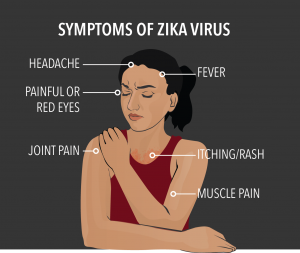How Medical Translation Could Help Win the Fight Against the Zika Virus
By Sarah-Claire Jordan
 Humans have come a long way in terms of dealing with outbreaks of contagious diseases and viruses. We can now isolate and identify the causes of each outbreak, and from there experiment to see what works best as a treatment. New medicines are being developed every day to better tackle huge problems like AIDS, HIV, cancer, and more. However, we are still vulnerable to diseases and viruses that come from remote parts of the world or pathogens that simply have become resistant to the usual drugs used to get rid of them.
Humans have come a long way in terms of dealing with outbreaks of contagious diseases and viruses. We can now isolate and identify the causes of each outbreak, and from there experiment to see what works best as a treatment. New medicines are being developed every day to better tackle huge problems like AIDS, HIV, cancer, and more. However, we are still vulnerable to diseases and viruses that come from remote parts of the world or pathogens that simply have become resistant to the usual drugs used to get rid of them.
The Zika virus is the latest outbreak that the world has had to deal with lately, following the Ebola crisis in many countries in East Africa. Luckily, the infection that the virus causes is usually mild and has not claimed any lives as of yet. There is no cure, and so those infected must simply rest and drink plenty of fluids as if they had a common cold or the flu.
So far, there is no vaccine for the Zika virus, which is a problem because the virus has been linked to microcephaly in newborns. This means that pregnant mothers who get infected with the virus, though they may experience very mild symptoms, are putting their unborn children at risk of developing microcephaly, which is characterized by poor neurological development and very small head circumference.
This particular outbreak started in Brazil and has spread throughout South and Central America. The most important information that must be relayed to the general public in any country would have to do with travel in this case. Pregnant women should postpone traveling to areas that could be home to infected individuals, and those who are infected should not travel so as to not further spread the virus. This is where medical translation comes into the picture, as so many times in the past viruses and other pathogens have been able to spread due to lack of information.
In order to properly protect pregnant women and women who are trying to get pregnant, a thorough description of the precautions that should be taken needs to be available in as many languages as possible. This is something that can only be done by medical translators, however, as there are very specific terms used by the medical community that general translators won’t necessarily know. Symptoms, treatment, and other information need to be clear and concise as well, and translated in a way that anyone can understand the risks and what to look out for. Again, only a medical translator is truly qualified to handle this type of translation.
The number of positive tests for the Zika virus will surely rise, but world health organizations can work closely with translation providers to keep the numbers in check and make sure pregnant women understand the risks they may be taking when traveling to certain areas of the world at the moment. When everyone has access to the same information, it is much easier to work together as a unit to deal with an issue. In the case of this virus, medical translators are the key to keeping everyone informed, no matter what language they speak.
For an overview of our translation expertise, visit our medical and life science translation page.
Category: Business Translation








